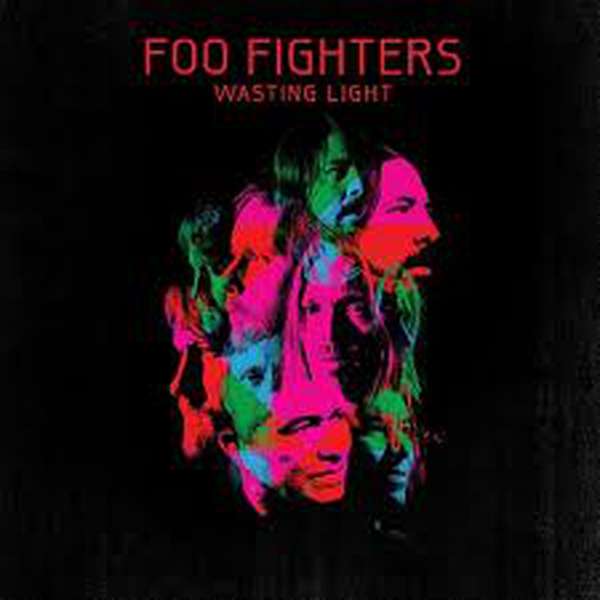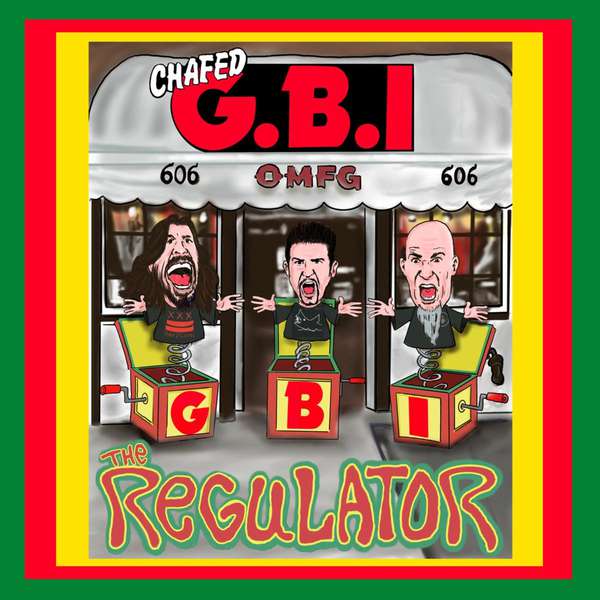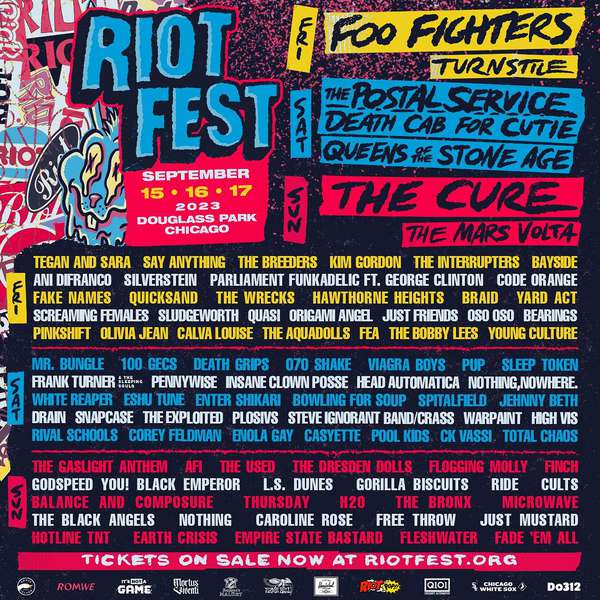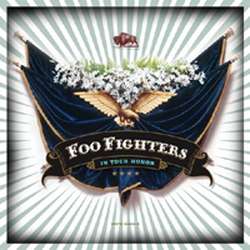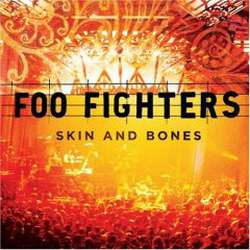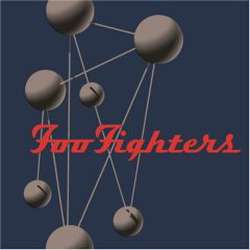Dave Grohl is a man of the people. For the last 16 years he's been one of the most endearing figures in hard music. Terminally cool, brutally honest and adept at the seemingly impossible – being able to walk that most tenuous of lines between artist and everyman. No one ever has or ever will accuse/congratulate the man for reinventing the wheel, but every Foo Fighters album is like a visit with an old friend. Yeah, not every visit is perfect, and sometimes you just talk about the same old shit but there's a comfort in that familiarity that's hard to find anywhere else.
Wasting Light is Foo Fighters' seventh album and it in no way is a departure from the sound we've all come to know and love, just more meat and potatoes rock that we've come to expect from Grohl and company. This is a band that has found a formula for success and they're not going to change it for anyone. I'm not talking about success to measured in dollars, mind you – but success in having found that niche, that groove, within that zone that works so well you don't ever have to change it again. This has always been the band's strongest asset. They know their place in our world. They know the parameters under which the Foo Fighters lie and rather than try to change it over the years, they've chosen to perfect it instead. When you listen to the radio (and does anybody really do that anymore?), you know instantly when a Foo Fighters song comes on. It stands out from the assembly line of music that surrounds it. When everyone sounds like everyone else to be able to have an identity for you music and not your wardrobe is a rare thing indeed.
“Bridge Burning” is the heaviest opener in Foo's discography and sets the tone for a ride through the band's most consistent album since 1997's The Colour and the Shape. Following closely behind is first single “Rope”, a song this writer admittedly wasn't initially overly fond of but has grown to love with time. Track three features a guest appearance by Hüsker Dü legend Bob Mould, whose voice works beautifully in the piece. Both appear to be be card-carrying members of the mutual admiration society, as the Foos' cover of Hüsker Dü's "Never Talking To You Again" appeared as a B-Side back in 2003. Interestingly, gone are the happy, bouncy anthems previous albums have contained (see: Cheer Up Boys (Your Make Up Is Running), Breakout and Overdrive) and let's face it, they probably won't be missed. In their stead, is good old-fashioned arena rock (see: “Arlandria” and 'Miss the Misery”).
Over the years, Foo Fighters have gone through numerous lineups and many producers and have always managed to sound both tight and loose at the same time, but this is the first time they've ever sounded fluid. There's an ease to the sound of this album that's been lacking in all previous efforts. Maybe it's the arrival of producer Butch Vig, producer of seminal album Nevermind from Grohl's previous band, Nirvana (if there's any of you that didn't actually know that, here's a leather strap. Self-flagellation begins in 3, 2, 1.....). Vig produced the two new songs for Foo Fighters' greatest hits package a couple of years back but here at the controls for a full album shows that familiarity with who you work with makes all the difference as well. Ask Krist Novoselic, Grohl's other previous Nirvana-mate, who guests on “I Should Have Known”, one of the album's many standouts.
Maybe it's because of guitarist Pat Smear, as his welcome return now marks the first time in the band's history as a five-piece and to add on a personal note, it's gonna be great to see him on stage with the band again. There's a denser overall sound with the new album that's due in no small part to now having a three-guitar attack (including oft-overlooked guitarist Chris Shiflett and Grohl himself). I call Shiflett overlooked but let's face it, when you've got a personality as big as Grohl's the whole damn band's overlooked.
Maybe it's the old-school approach of recording the entire thing on analog tape rather than the myriad of digital options available. What's that? Oh. [an-l-awg teyp] – noun: is a medium for magnetic recording, made of a thin magnetizable coating on a long, narrow strip of plastic. It was developed in Germany, based on magnetic wire recording. Devices that record and play back audio and video using magnetic tape are tape recorders and video tape recorders.
Maybe it's the fact that the album was recorded in Grohl's garage (not a garage converted into a studio, mind you – but an actual garage with boxes and bikes and shit).
Or maybe, just maybe we shouldn't question why something works. Maybe we should just kick back and enjoy the fact that while everyone else would be satisfied with merely being good, Foo Fighters took hard work, diligence, perseverance and time to hone their craft and become great.
